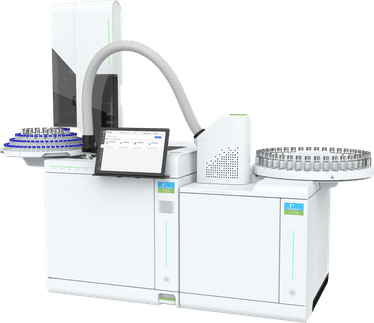To use all functions of this page, please activate cookies in your browser.
my.chemeurope.com
With an accout for my.chemeurope.com you can always see everything at a glance – and you can configure your own website and individual newsletter.
- My watch list
- My saved searches
- My saved topics
- My newsletter
Gerstmann-Sträussler-Scheinker syndrome
Gerstmann-Sträussler-Scheinker syndrome (GSS) is a very rare, usually familial, fatal neurodegenerative disease that affects patients from 20 to 60 years in age. This extremely rare disease is classified as a transmissible spongiform encephalopathy (TSE). Product highlightThe exact incidence of GSS is unknown but is estimated to be between 1 to 10 per 100 million. Familial cases are associated with autosomal dominant inheritance. CausesIt is one of the few diseases which are caused by prions; a class of pathogenic proteins highly resistant to proteases. A change in codon 102 from proline to leucine has been found in the prion protein gene (PRNP) of most affected individuals. Therefore, it appears this genetic change is usually required for the development of the disease. SymptomsSymptoms start with slowly developing dysarthria (difficulty speaking) and cerebellar ataxia (unsteadiness) and then the progressive dementia becomes more evident. PrognosisThere is no cure or treatment for GSS and patients rarely survive longer than five years.
|
||||||||||||||||
| This article is licensed under the GNU Free Documentation License. It uses material from the Wikipedia article "Gerstmann-Sträussler-Scheinker_syndrome". A list of authors is available in Wikipedia. | ||||||||||||||||







